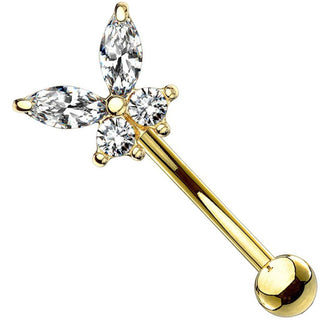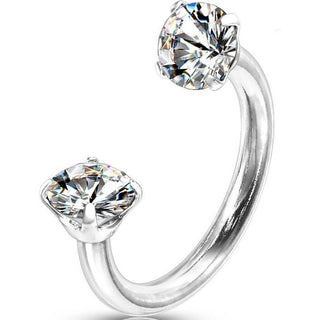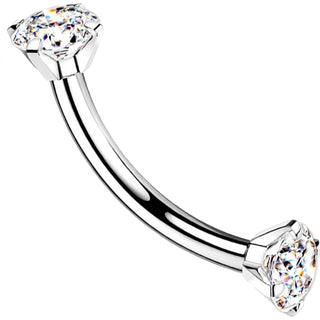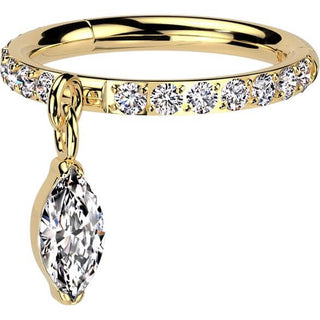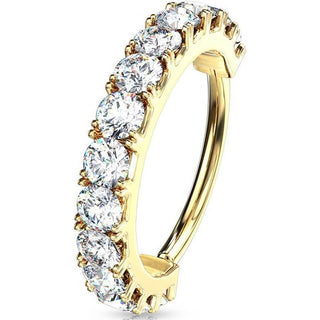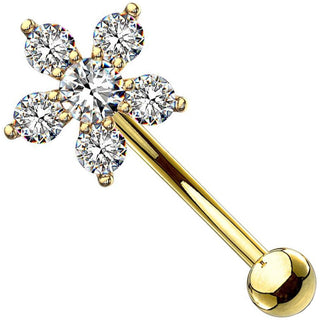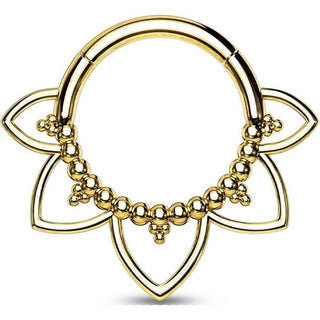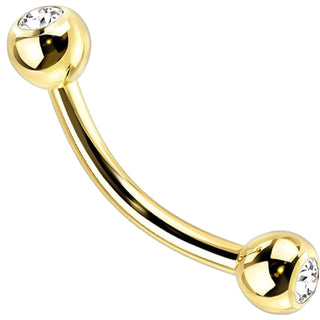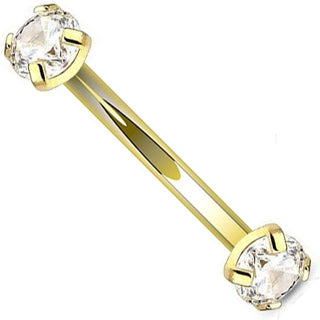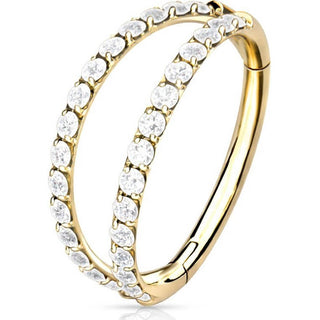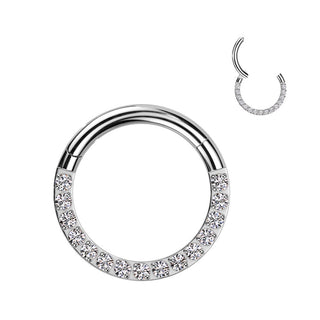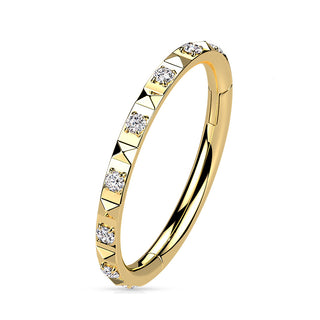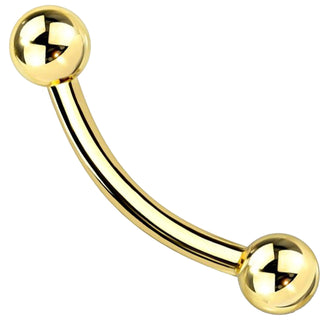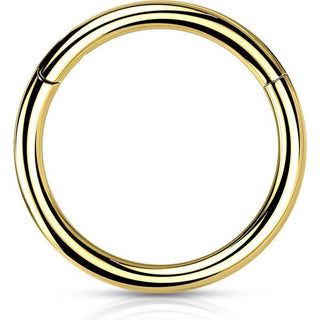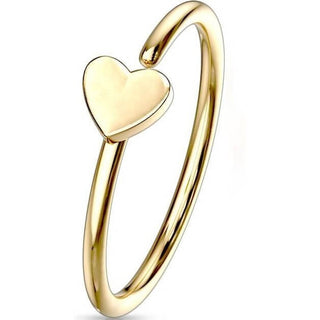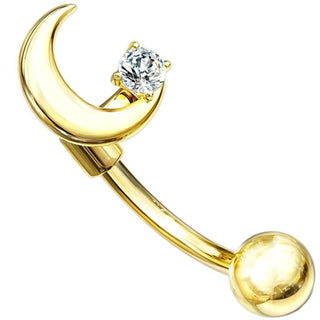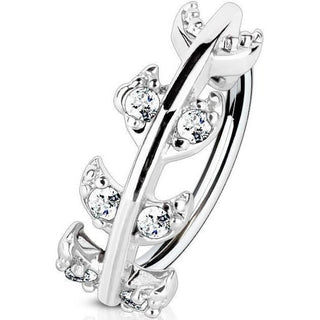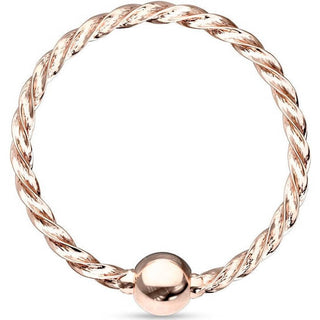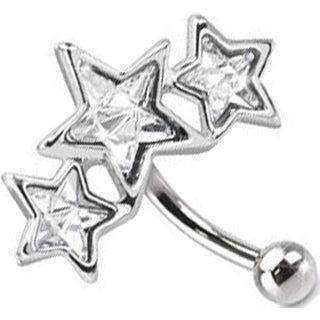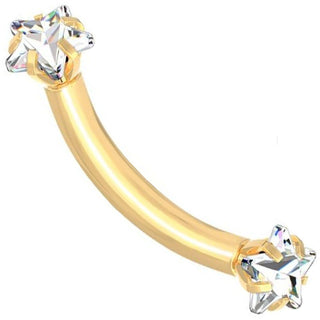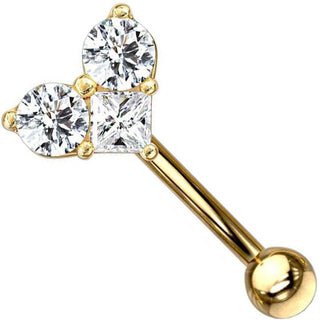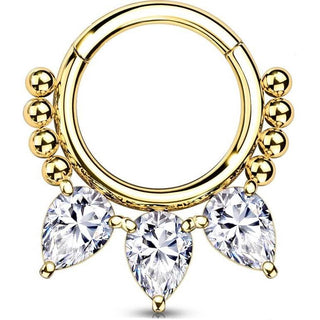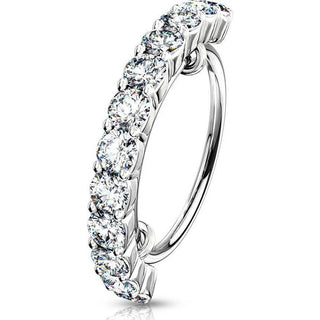Rook Piercing
Explore our extensive range of over 600 Rook Piercings made from Titanium and 316L Surgical Steel. Exceptional prices and customer service await you at our shop.
Rook Piercing
The Rook Piercing is a type of ear piercing that is located in the pinna of the ear. This Ear Piercing is pierced vertically at the cartilage fold between the Forward Helix Piercing and the Daith Piercing. The Rook belongs to the cartilage piercings and is often worn by men and women. In addition, the Rook is a special ear piercing that is not seen as often as other ear piercings such as the Helix Piercing or Tragus Piercing. This gives the wearer a very unique and individual piercing.
In our shop we can offer you a large selection of beautiful Rook Jewelry. Piercing rings with balls or small pendants embellish the rook piercing. Small Curved Barbell Piercing with simple balls or fancy attachments nestle against the rook and accentuate the area. With our sparkling rook jewellery set with zirconia or opal stones your piercing will always be the centre of attention.
The most important information about Rook piercings, from piercing and care to the risks, can be found here in this guide.
Rook jewellery
The rook piercing can be embellished with different types of piercing jewellery. Mostly Curved Barbells (bananas) are used here. But with Piercing Ring like Clicker Piercing or CBR Piercing rings the Rook can also be set in scene. Horseshoe Piercing rings are also an optimal type of jewellery for the Rook due to their curved shape. The Rook Piercing can be individualised through the different colours and shapes of the balls. Different designs such as hearts, moons, stars or animals also create unique looks.
For a very special look, the rook piercing can also be decorated with rings with small, delicate pendants. Piercing jewellery set with Zirconia Piercing or Opal Piercing stones embellish the rook piercing even more.
The piercing size of rook jewellery is approx. 8 mm - 10 mm in diameter. The bar length is very individual and should be measured before buying jewellery. The bar length can range from 6 mm to 10 mm. The thickness of the Rook piercing jewellery is about 1.0 mm to 1.6 mm.
The most popular materials for Rook jewellery are Titanium Piercing, 14 carat Gold Piercing and Surgical Steel Piercing. Titanium Rook piercings offer the advantage that they are nickel-free and therefore suitable for allergy sufferers. A pleasant wearing comfort is made possible by the low weight of titanium Rook piercings. 14 carat gold rook piercings provide an elegant and luxurious piercing look. The timeless 14 carat gold represents an investment with which your Rook jewellery will shine. Surgical steel Rook piercings are very robust. Piercing jewellery made of surgical steel cannot rust and does not discolour.
Piercing
When piercing the rook, a curved needle and a receiving tube are used so that the surrounding tissue is not accidentally injured. The site is disinfected by the piercer and the entry and exit points are marked. Once you agree with the placement, the piercer will pierce the cartilage in a precise movement with the curved needle. In most cases, a small banana made of titanium is inserted as the initial Jewelry.
The cartilage fold where the rook is pierced is not pronounced enough for everyone to pierce the popular Piercings. Your piercer will look at the area carefully before piercing and assess whether the piercing is possible.
The pain of a rook can be somewhat greater than with other piercings, as the piercing is made through a slightly larger area. People who are particularly sensitive to pain may want to consider other piercing sites. However, if you have fallen head over heels in love with the rook, you can ask the piercer for anaesthetic to reduce the pain. In any case, the short pain is worth it, because in the end you have a unique and beautiful ear piercing.
The cost of piercing a rook piercing is around 30€ - 60€ depending on the studio and region.
Care and healing
The healing phase of a rook piercing takes about 6 to 9 months. During this time, the piercing wound must be treated with special care so that it can heal without any problems.
The rook piercing should be cleaned twice a day with special piercing care products. The hands must always be disinfected and clean first. Crusts around the puncture site should not be removed dry. Instead, it is recommended to soak the crusts with water and remove them carefully. If the new piercing swells, it can be cooled gently to speed up the swelling. Apart from care, the rook should not be touched.
The pierced ear should not be slept on while it is healing. If both ears are freshly pierced, you can sleep on a neck pillow. In this case, you should lie with your ear in the opening of the neck pillow so that no pressure is exerted on the wound during sleep.
Objects such as the telephone should not be held to the ear until the piercing has healed, as there is a risk of bacteria and germs being spread. Headphones should also be avoided during this time as they also put pressure on the rook.
Always be careful with clothing that is pulled over the head. If the clothing gets caught on the piercing Jewelry, it can be very painful and the healing process can also be negatively affected. Care should also be taken with the hair so that it does not get tangled with the initial jewellery. For this purpose, long hair should be tied up until it heals and kept away from the wound.
Certain products should never come into contact with the piercing wound during the healing phase. These include first and foremost hair dyes, as they contain aggressive chemicals. Hair care products such as hair spray or mousse should also be avoided for the time being. Shampoo and conditioner should be used in a milder form, at least while the wound is healing.
During the first few weeks, it is not recommended to visit saunas, swimming pools and solariums, as there is an increased risk of infection. For this reason, bathing and doing sports should also be avoided.
Risks
The Rook Piercing, like every piercing, is associated with possible risks. The risk of inflammation is increased due to the longer healing time. For this reason, thorough and regular care is especially important so that the piercing canal always remains clean.
The auricle may swell immediately after the piercing of the rook. Such swelling is perfectly normal at first and should go down after a few days. The site can be cooled carefully in the meantime.
There is an increased risk for the formation of game flesh with a Rook, because this piercing belongs to the cartilage piercings. Unsightly hardening or blisters can form on the cartilage tissue directly at the puncture site. If you notice game meat on your own piercing, the piercer can recommend a specially adapted care. By following this care, the skin at the puncture site can become smooth again.
With a rook, as with all cartilage piercings, a pressure pain can occur. This is caused by the displaced cartilage when it is pierced. If you are very sensitive to pressure pain, the dermal punch method should be considered. This involves punching out some of the cartilage tissue in the affected area instead of displacing it. This can prevent the pressure pain.
If a rook piercing is pierced too superficially, the Piercings can also grow out. This risk can only be counteracted by choosing an experienced piercer. A typical sign of a piercing that is growing out is the appearance of the jewellery getting longer. The more the piercing canal contracts, the more you see of the piercing jewellery. The piercing site may also be reddened and sensitive.



